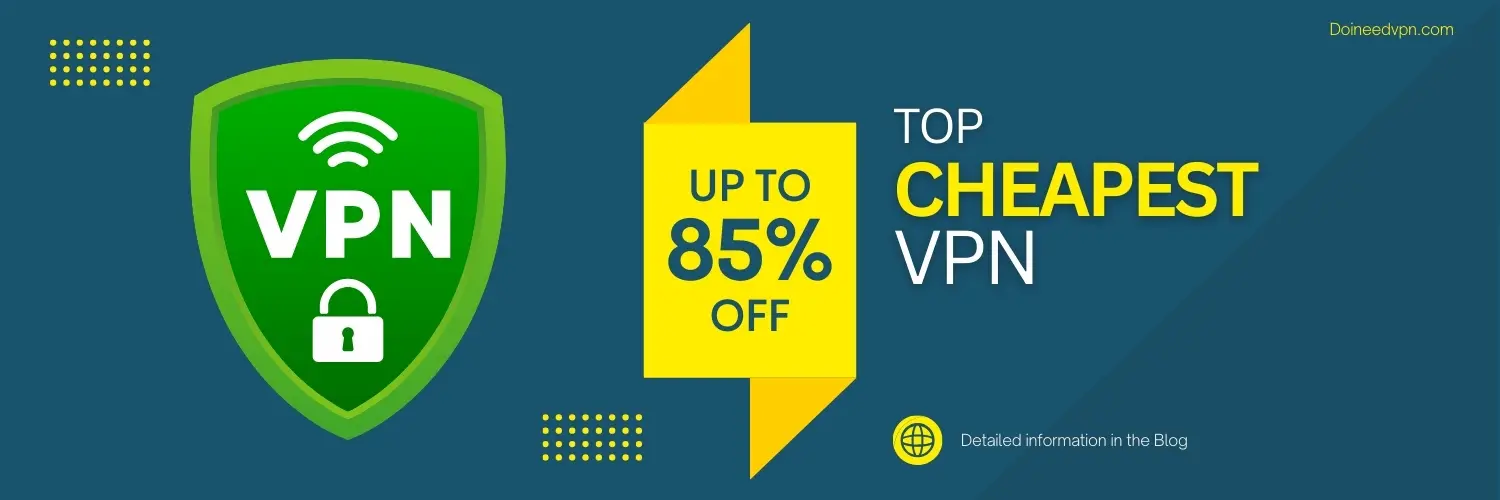Virtual Private Networks (VPNs) have become an essential tool for individuals and businesses alike to ensure secure and private internet connections. When it comes to VPNs, there are two main types: split tunnel and full tunnel. In this article, we will explore the main differences between split tunnel and full tunnel VPNs, their advantages and disadvantages, and when to use each type.
Split Tunnel VPNs:
A split tunnel VPN is a type of VPN connection where only a portion of the internet traffic is encrypted and sent through the VPN tunnel, while the rest of the traffic is directly routed through the user's regular internet connection. This means that when using a split tunnel VPN, the user can access both the local network and the internet simultaneously.
Full Tunnel VPNs:
A full tunnel VPN, on the other hand, is a type of VPN connection where all of the internet traffic is encrypted and sent through the VPN tunnel. This means that when using a full tunnel VPN, all of the user's internet activities are protected and secured.
A split tunnel VPN is a configuration that allows users to divide their internet traffic between the VPN tunnel and their local network. In other words, only specific traffic is routed through the VPN, while the rest of the traffic is directly sent to the internet without encryption.
Advantages of Split Tunnel VPN

List of Advantages of Split Tunnel VPN-
1. Improved Performance: Split tunneling can enhance performance by reducing the load on the VPN server. Since only selected traffic is sent through the VPN, other non-sensitive traffic can take a more direct route to the internet, resulting in faster speeds.
2. Access to Local Network: With split tunneling, users can access devices and resources on their local network while simultaneously using the VPN for specific applications or websites. This can be beneficial for users who need to access local printers, file servers, or other devices while connected to the VPN.
3. Reduced Bandwidth Usage: By allowing non-sensitive traffic to bypass the VPN, split tunneling can help conserve bandwidth. This is particularly useful for users with limited data plans or when connected to networks with bandwidth restrictions.
4. Enhanced Security: Split tunneling allows users to customize their VPN configuration based on their specific security needs. By selectively routing sensitive traffic through the VPN, users can ensure that their most critical data is protected while still allowing non-sensitive traffic to bypass the VPN. This can be especially useful for organizations that handle sensitive information but also have non-sensitive applications or websites that do not require the same level of security.
5. Flexibility and Convenience: Split tunneling provides users with the flexibility to choose which applications or websites they want to route through the VPN and which ones they want to access directly. This can be convenient for users who frequently switch between accessing local resources and using specific applications that require a VPN connection. It allows them to have a seamless experience without constantly connecting and disconnecting from the VPN.
6. Improved User Experience: Split tunneling can significantly improve the user experience by reducing latency and improving network performance. Since non-sensitive traffic is not routed through the VPN, users can experience faster load times and smoother browsing when accessing non-sensitive websites or applications. This can be especially beneficial for remote workers who rely on VPN connections to access company resources while also needing to access non-sensitive websites or applications for personal use.
7. Cost Savings: Split tunneling can help organizations save on VPN costs by reducing the amount of data that needs to be routed through the VPN. By allowing non-sensitive traffic to bypass the VPN, organizations can minimize the bandwidth requirements and potentially reduce the need for additional VPN servers or network infrastructure. This can result in significant cost savings, especially for organizations with a large number of remote workers or those with limited IT budgets.
Overall, split tunneling offers numerous advantages in terms of performance, security, flexibility, and cost savings. By allowing users to customize their VPN configuration and selectively route traffic, organizations and individuals can optimize their network performance, improve user experience, and enhance security while also conserving bandwidth and reducing costs.
Disadvantages of Split Tunnel VPN

1. Security Risks: The main drawback of split tunneling is the potential security risks it poses. Since only selected traffic is encrypted and sent through the VPN, any traffic that bypasses the VPN is susceptible to interception or monitoring. This can be a concern when accessing unsecured networks or when dealing with sensitive information.
2. Increased Attack Surface: By allowing non-VPN traffic, split tunneling increases the attack surface for potential threats. Any compromised device or application on the local network can become an entry point for attackers, potentially compromising the security of the entire network.
3. Lack of Anonymity: When using a split tunnel VPN, the user's IP address is only masked for the traffic that goes through the VPN. Any non-VPN traffic will still reveal the user's true IP address, potentially compromising their anonymity.
4. Network Performance: Split tunneling can also have an impact on network performance. Since the VPN only handles selected traffic, the rest of the traffic is routed through the regular internet connection. This can lead to increased latency and slower speeds for non-VPN traffic, especially if the internet connection is already congested.
5. Management Complexity: Implementing and managing a split tunnel VPN can be more complex compared to a full tunnel VPN. IT departments need to carefully configure and monitor the routing policies to ensure that the right traffic is being sent through the VPN and that potential security risks are minimized. This complexity can increase the administrative burden and require additional resources.
6. Incompatibility with certain applications: Some applications may not work properly when split tunneling is enabled. For example, certain corporate applications or services may require all traffic to be routed through the VPN for security or compliance reasons. In such cases, split tunneling may not be a viable option and can limit the usability of the VPN.
7. Compatibility with certain devices: Split tunneling may not be supported on all devices or operating systems. Some devices or operating systems may not have the necessary configuration options or may have limitations that prevent the use of split tunneling. This can restrict the flexibility and availability of split tunnel VPNs for users with different devices.
8. Increased complexity for troubleshooting: When issues arise with a split tunnel VPN, troubleshooting can be more complex compared to a full tunnel VPN. Since traffic is split between the VPN and the regular internet connection, it can be more challenging to identify and resolve connectivity or performance issues. This can lead to longer resolution times and increased frustration for both users and IT support teams.
Despite these disadvantages, split tunneling can still be a useful feature for certain use cases and scenarios. Organizations and individuals need to carefully weigh the pros and cons of split tunnel VPNs to determine if they are the right choice for their specific needs.
Advantages of Full Tunnel VPN

1. Enhanced Security: With a full tunnel VPN, all internet traffic is encrypted and sent through the VPN, providing a higher level of security and privacy. This is particularly important when accessing public Wi-Fi networks or when dealing with sensitive information that requires utmost protection.
2. Anonymous Browsing: By routing all traffic through the VPN, a full tunnel VPN ensures that the user's true IP address is masked for all online activities. This helps protect the user's anonymity and prevents websites or online services from tracking their real location.
3. Protection from Network Threats: Full tunnel VPNs protect users from potential network threats, such as man-in-the-middle attacks, eavesdropping, or data interception. By encrypting all traffic, the VPN creates a secure tunnel between the user's device and the VPN server, preventing unauthorized access to sensitive information.
4. Bypassing Geo-restrictions: Another advantage of using a full tunnel VPN is the ability to bypass geo-restrictions. Many online services and websites restrict access based on the user's geographical location. However, by connecting to a VPN server located in a different country, users can appear as if they are browsing from that country, allowing them to access geo-restricted content.
5. Access to Restricted Networks: In some cases, organizations or institutions may place restrictions on their network, preventing users from accessing certain websites or services. With a full tunnel VPN, users can bypass these restrictions and access the internet freely, regardless of any network limitations.
6. Secure Remote Access: Full tunnel VPNs are commonly used by businesses to provide secure remote access to their employees. By connecting to the company's VPN server, employees can access internal resources and work remotely while ensuring that their data is protected and their connection is secure.
7. Privacy Protection: Full tunnel VPNs also offer privacy protection by preventing ISPs (Internet Service Providers) from monitoring or tracking users' online activities. This ensures that users have complete control over their online privacy and can browse the internet without the fear of their data being collected or sold to third parties.
8. Secure VoIP and Messaging: With the increasing popularity of voice over IP (VoIP) calls and messaging apps, it is essential to ensure that these communications are secure and private. Full tunnel VPNs encrypt all traffic, including VoIP calls and messaging, providing an extra layer of security and protecting sensitive conversations from being intercepted or monitored.
Overall, a full tunnel VPN offers numerous advantages, including enhanced security, anonymous browsing, protection from network threats, bypassing geo-restrictions, access to restricted networks, secure remote access, privacy protection, and secure VoIP and messaging. Whether for personal use or for businesses, a full tunnel VPN is an essential tool for ensuring online privacy, security, and unrestricted access to the internet.
Disadvantages of Full Tunnel VPN

1. Potential Performance Impact: Since all internet traffic is routed through the VPN, there can be a potential impact on performance. The encryption and decryption processes can introduce latency, resulting in slower speeds compared to split tunneling. This can be particularly noticeable when streaming high-definition videos or engaging in real-time online gaming.
2. Restrictions on Local Network Access: When using a full tunnel VPN, access to local network devices or resources may be restricted. This can be problematic for users who need to access printers, file servers, or other devices on their local network while connected to the VPN. For example, if a user is working from home and needs to print a document, they may find that their printer is not accessible while connected to the VPN.
3. Increased Bandwidth Usage: Because all traffic is routed through the VPN, a full tunnel VPN can consume more bandwidth compared to split tunneling. This can be a concern for users with limited data plans or when connected to networks with bandwidth restrictions. For instance, if a user is connected to a public Wi-Fi network with a data cap, using a full tunnel VPN may quickly deplete their allotted data.
4. Dependency on VPN Connection: With a full tunnel VPN, all internet traffic relies on the VPN connection. If the VPN server experiences downtime or connectivity issues, the user may lose internet access entirely. This can be frustrating and disruptive, especially for individuals who rely heavily on a stable internet connection for work or other activities.
5. Potential Privacy Concerns: While VPNs are designed to enhance privacy and security, there can be potential privacy concerns with full tunnel VPNs. Since all internet traffic is routed through the VPN server, the VPN provider has the ability to monitor and log the user's online activities. This can raise concerns for individuals who prioritize anonymity and want to avoid any potential surveillance.
6. Limited Access to Local Services: In some cases, when connected to a full tunnel VPN, certain local services may not be accessible. This can include services that rely on geolocation, such as streaming platforms that offer region-specific content or online banking services that require access from a specific location. Users may need to disconnect from the VPN to access these services, which can be inconvenient.
When To Use Split Tunnel VPN?
A split tunnel VPN is suitable in the following scenarios:
1. Accessing Local Network Resources: When users need to access devices or resources on their local network while simultaneously using the VPN for specific applications or websites.
For example, imagine a remote worker who needs to access files on their company's local server while also using the VPN to securely browse the internet. By utilizing split tunneling, they can connect to the local network resources without routing all their internet traffic through the VPN. This allows them to have a seamless experience accessing both the local network and the internet.
2. Conserving Bandwidth: When users have limited data plans or when connected to networks with bandwidth restrictions, split tunneling can help conserve bandwidth by allowing non-sensitive traffic to bypass the VPN.
Let's say you are working from a coffee shop with a limited data plan. You need to access your work email through the VPN, but you also want to stream some music in the background. With split tunneling, you can configure the VPN to only route the traffic related to your work email, while allowing the music streaming traffic to bypass the VPN. This way, you can save your precious data for work-related tasks and still enjoy your favorite tunes.
3. Performance Optimization: When users require faster speeds for non-sensitive traffic, such as streaming media or browsing non-sensitive websites, split tunneling can improve performance by reducing the load on the VPN server.
Consider a scenario where you are using a VPN to access a website that requires a secure connection, but you also want to stream a high-definition video from a different website. By utilizing split tunneling, you can configure the VPN to only handle the secure connection for the website, while allowing the video streaming traffic to bypass the VPN. This way, you can enjoy faster streaming speeds for the video without compromising the security of your connection to the website.
Best VPN for split tunneling is Surfshark read in more detail about it in one click.
When To Use Full Tunnel VPN?
A full tunnel VPN is recommended in the following scenarios:
1. Maximizing Security: When users require the highest level of security and privacy for all their internet activities, particularly when accessing public Wi-Fi networks or dealing with sensitive information. In these situations, a full tunnel VPN encrypts all internet traffic, ensuring that no unauthorized parties can intercept or access sensitive data. This is crucial for individuals who handle confidential information, such as financial transactions or personal data.
2. Anonymous Browsing: When users want to mask their true IP address for all online activities and prevent websites or online services from tracking their real location. By routing all internet traffic through a full tunnel VPN, users can effectively hide their IP address and appear as if they are accessing the internet from a different location. This is particularly useful for individuals who want to bypass geo-restrictions and access content that may be blocked in their country.
3. Protection from Network Threats: When users need protection from potential network threats, such as man-in-the-middle attacks or data interception, a full tunnel VPN ensures that all traffic is encrypted and secure. This means that even if someone manages to intercept the data being transmitted, they won't be able to decipher it without the encryption key. This is especially important when using public Wi-Fi networks or when accessing sensitive information, as these networks are often targeted by hackers.
4. Remote Access: When users need to access resources on a private network, such as files or applications, from a remote location, a full tunnel VPN provides a secure connection. By establishing a virtual tunnel between the user's device and the private network, all data transmitted between the two is encrypted and protected. This allows individuals to work remotely without compromising the security of the private network.
Overall, a full tunnel VPN is an essential tool for individuals and organizations that prioritize security, privacy, and remote access. By encrypting all internet traffic and routing it through a secure tunnel, users can ensure that their data remains confidential and protected from potential threats.
In conclusion, both split tunnel VPNs and full tunnel VPNs have their own advantages and disadvantages. Split tunnel VPNs provide faster internet speeds and more flexibility in accessing local resources, but may not offer the same level of security as full tunnel VPNs. On the other hand, full tunnel VPNs provide enhanced security and privacy for all internet activities, but can potentially slow down internet speeds. The choice between the two types of VPNs depends on the specific needs and requirements of the individual or business.
Read and learn more about VPN in detail on Doineedvpn.










